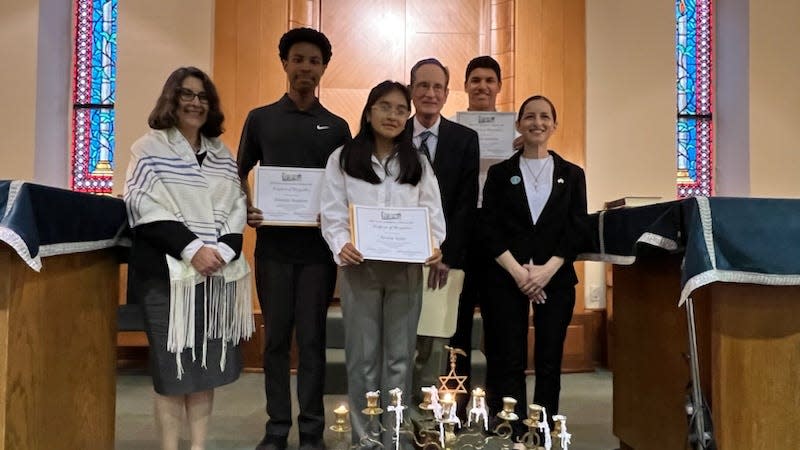What have we learned from the Holocaust?
It is almost 80 years since the liberation of Auschwitz, one of the events that marked the end of the Holocaust. As Christopher Browning wrote: “I believe that the Holocaust was a watershed event in human history — the most extreme case of genocide that has yet occurred. What distinguishes it from other genocides are two factors: first, the totality and scope of intent — that is, the goal of killing every last Jew, man, woman and child, throughout the reach of the Nazi empire; and second, the means employed — namely, the harnessing of the administrative/bureaucratic and technological capacities of a modern nation-state and western scientific culture.” (Christopher Browning, Nazi Policy, Jewish Workers, German Killers, (Cambridge: CUP 2000, p 32).
With the exception of one year during the COVID pandemic, for the past 32 years Beth Israel Congregation of Salisbury has held a public remembrance ceremony to keep alive the memory of this horrific historic period. We host this program not because we want to relive the events, but because we believe that we must honor the legacy of those who suffered and those who were murdered by continuing to tell their story. There are lessons to be learned from this horrible chapter in human history, and it’s our honor and our responsibility to keep these events in the public mind.

Litman Litow, a larger-than-life member of the congregation, inspired us to hold this program. Mr. Litow was a survivor of the Holocaust and was also a resistance fighter during the war. His indominable spirit lives on in the congregation. Even after his death, we have continued to hold this remembrance.
As we have watched participants in our congregation age, we realized the importance of reaching out to a new generation. This year, we decided to engage the public high schools in Wicomico County. We created an essay contest asking them to share with us what they have learned from the Holocaust.
We are gratified that Wicomico County high school students responded. The top three winners read their essays at our annual program.
Rabbi Ruth Smith is the rabbi of Beth Israel Congregation of Salisbury.
This article originally appeared on Salisbury Daily Times: What have we learned from the Holocaust?
